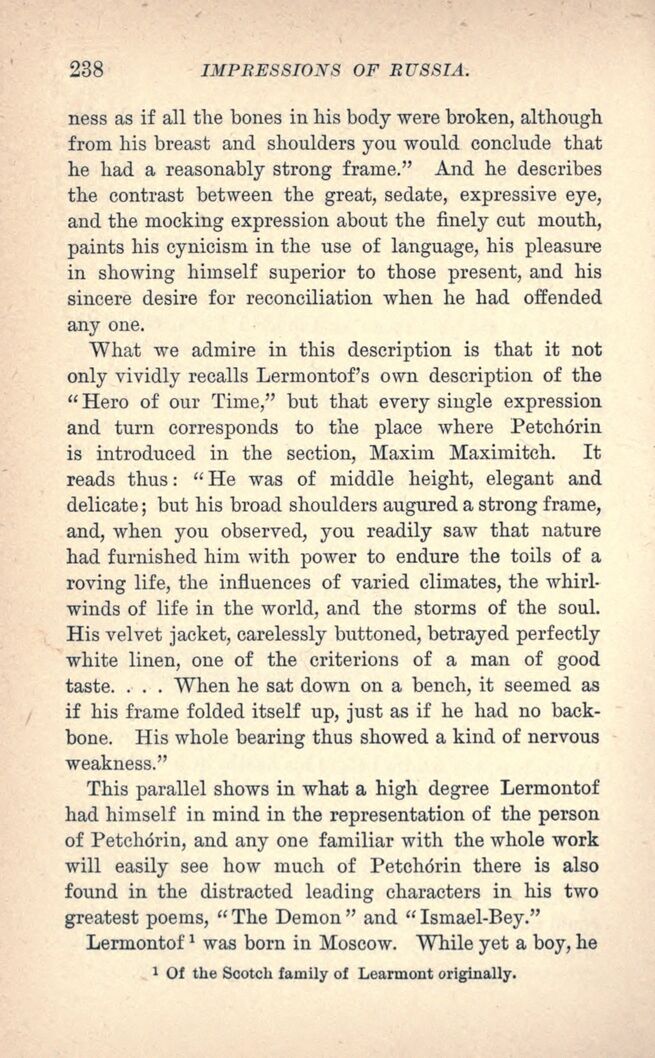
Full resolution (JPEG) - On this page / på denna sida - Impressions of Russian Literature - III

<< prev. page << föreg. sida << >> nästa sida >> next page >>
Below is the raw OCR text
from the above scanned image.
Do you see an error? Proofread the page now!
Här nedan syns maskintolkade texten från faksimilbilden ovan.
Ser du något fel? Korrekturläs sidan nu!
This page has been proofread at least once.
(diff)
(history)
Denna sida har korrekturlästs minst en gång.
(skillnad)
(historik)
suppleness as if all the bones in his body were broken, although
from his breast and shoulders you would conclude that
he had a reasonably strong frame.” And he describes
the contrast between the great, sedate, expressive eye,
and the mocking expression about the finely cut mouth,
paints his cynicism in the use of language, his pleasure
in showing himself superior to those present, and his
sincere desire for reconciliation when he had offended
any one.
What we admire in this description is that it not
only vividly recalls Lermontof’s own description of the
“Hero of our Time,” but that every single expression
and turn corresponds to the place where Petchórin
is introduced in the section, Maxim Maximitch. It
reads thus: “He was of middle height, elegant and
delicate; but his broad shoulders augured a strong frame,
and, when you observed, you readily saw that nature
had furnished him with power to endure the toils of a
roving life, the influences of varied climates, the
whirlwinds of life in the world, and the storms of the soul.
His velvet jacket, carelessly buttoned, betrayed perfectly
white linen, one of the criterions of a man of good
taste.... When he sat down on a bench, it seemed as
if his frame folded itself up, just as if he had no
backbone. His whole bearing thus showed a kind of nervous
weakness.”
This parallel shows in what a high degree Lermontof
had himself in mind in the representation of the person
of Petchórin, and any one familiar with the whole work
will easily see how much of Petchórin there is also
found in the distracted leading characters in his two
greatest poems, “The Demon” and “Ismael-Bey.”
Lermontof[1] was born in Moscow. While yet a boy, he
<< prev. page << föreg. sida << >> nästa sida >> next page >>